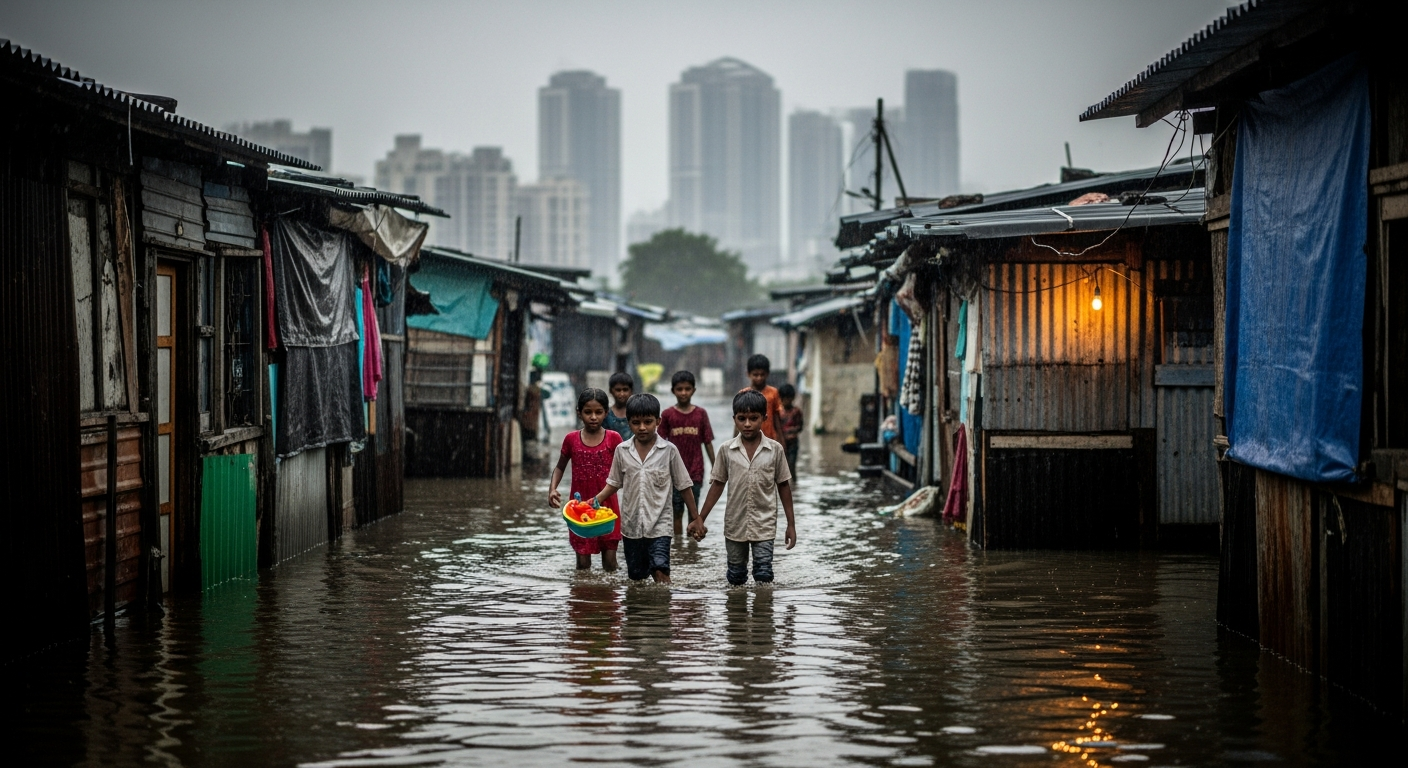
The monsoon season in Mumbai often brings a sense of renewal, yet, for many, it also unveils a harsh reality. I recently read a report by Richa Pinto in The Times of India, stating that an alarming 17 out of 20 monsoon deaths in Mumbai occur among the poor living in slums 17 of 20 monsoon deaths in Mumbai occur among poor living in slums: Study | Mumbai News - The Times of India.
My heart sinks reading this. This isn't just about heavy rains; it's about inadequate infrastructure, precarious living conditions, and a societal framework that leaves its most vulnerable citizens exposed to preventable tragedies. It reminds me of how often I've urged for a broader perspective on problem-solving.
For years, I've spoken about the critical need to look beyond narrow definitions of progress and to actively embrace solutions for extremely urgent problems facing the economy and society. In my blog, "Why this narrow focus?" Why this narrow focus?, I lamented the tendency to confine ourselves to a limited set of technologies when dozens of other innovations could be deployed to attack pressing problems. While that blog focused on urban traffic, the underlying principle holds true for fundamental issues like safe housing and urban resilience.
This dire situation in Mumbai's slums also echoes my concerns articulated in "Need of the Future? No, need of NOW!" Need of the Future? No, need of NOW!. There, I highlighted the slow pace of reforms and questioned whether there's an awareness that we are sitting on a TIME BOMB when basic needs of the population are neglected. The monsoon deaths are a tragic manifestation of this ticking clock.
I often reflect on how innovation, when directed thoughtfully, can address significant challenges. Peter H. Diamandis (peter@a360.com), a futurist I've discussed in "Low Cost Production and AI" Low Cost Production and AI, envisions a future where the cost of producing goods and services is rapidly declining. If we can leverage such advancements to reduce the cost of essential infrastructure, could we not apply this to building more resilient, safer homes and communities for those living in slums? This isn't a call for luxury but for basic human dignity and safety.
The core idea I want to convey is this — take a moment to notice that I had brought up the thought of urgently applying comprehensive, innovative solutions to pressing societal problems years ago. Now, seeing how things have unfolded with such tragic consequences, it's striking how relevant that earlier insight still is. Reflecting on it today, I feel a sense of validation for the urgency I stressed and also a renewed urgency to revisit those earlier ideas, because they clearly hold value in the current context. We must find ways to ensure that technological progress and economic growth translate into tangible safety and improved living conditions for everyone, especially the most marginalized.
Regards, Hemen Parekh
Of course, if you wish, you can debate this topic with my Virtual Avatar at : hemenparekh.ai






No comments:
Post a Comment